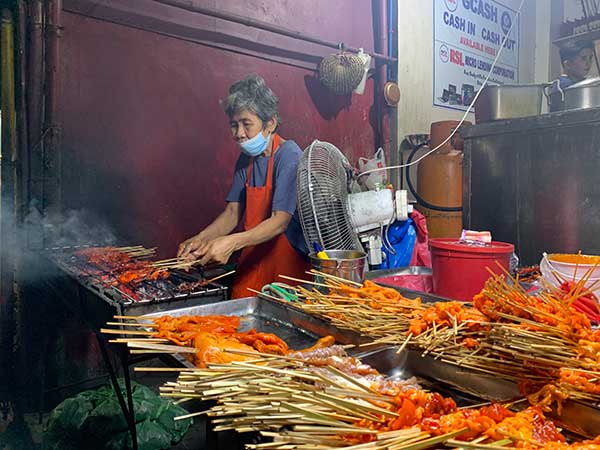
By Rjay Zuriaga Castor
The Iloilo City Health Office (CHO) is intensifying its campaign against food and waterborne diseases as high summer temperatures increase the risk of contamination.
Jeffrey Mabilog, Nurse IV and CHO Food and Waterborne Diseases Coordinator, said their main concern is the contamination of food and water, which can lead to serious illnesses when consumed.
“These diseases are typically caused by bacteria, viruses, parasites, or chemicals, substances that enter the body through ingestion,” he said in a press conference on Thursday, April 10.
Mabilog explained that hot weather accelerates the growth of harmful bacteria, especially in perishable foods, making ready-to-eat items more vulnerable to spoilage and contamination.
For waterborne diseases, he said warmer water temperatures promote the spread of harmful pathogens, which can cause severe infections if consumed through unsafe water or seafood.
Mabilog also identified poor hygiene, improper food handling and storage, and cross-contamination as leading causes of these illnesses.
He urged the public to be cautious when buying street food, observe proper food safety practices, and report unsanitary conditions to the CHO.
Households that hire catering services during the fiesta season are also encouraged to verify that providers are compliant with sanitation permits.
MONITORING OF WATER AND FOOD STALLS
To ensure safe drinking water, the CHO is monitoring water sources and water refilling stations across Iloilo City.
Jennifer Avenir, Chief Sanitation Inspector IV, said sanitary inspectors conduct monthly bacteriological water tests and semiannual physical and chemical tests.
“All water refilling stations in the city are monitored monthly for the bacteriological water test,” Avenir said.
“For the physical and chemical tests, it’s every six months for their product,” she added.
“For raw water, it’s every three months for the backtake and once a year for the physical and chemical,” she said.
Stations that fail tests are suspended until they meet compliance standards, while those operating without permits are recommended for temporary closure.
The CHO is also addressing water access issues in villages with condemned wells by providing water tanks and emergency supplies.
For ambulant food vendors, the CHO is strictly enforcing regulations on the use of ice for cold drinks or palamig.
“Since we conducted the Food Handlers Orientation to all the vendors in the City of Iloilo, we agreed that if we see ice blocks, we will dispose of the product,” Avenir said.
“So far, in our operations, the vendors are not resisting it,” she added.
She also encouraged food businesses to source ice from suppliers within Iloilo City to ensure safety and monitoring.
CHO inspections of ambulant vendors are done without prior notice.
Non-compliant vendors and establishments are subject to corrective action, formal notices, or temporary closure.



















